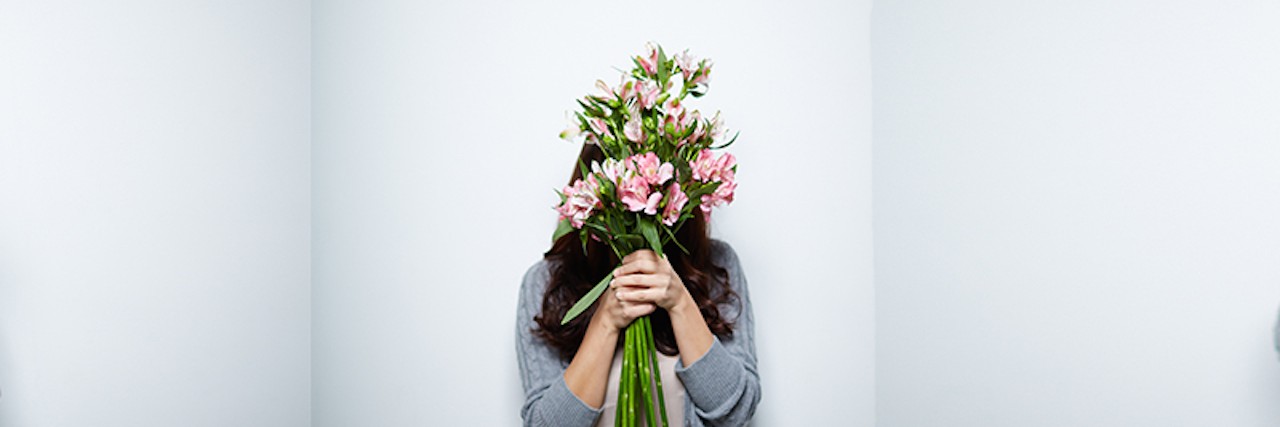We Need to Start Talking About the Physical Effects of 'Background Anxiety'
I’ve written a lot about what panic attacks are like, and things you can do to calm yourself down. What I haven’t really talked about is what low-grade anxiety is like; the stuff that slowly builds and is kind of always there in the background.
I’m fortunate that I don’t live with the feeling of anxiety every minute of every day. There are people who do, and based on my own experience, I can imagine how much that sucks. But my boyfriend and I are moving, and I’ve been living with background anxiety about it for the last few days.
This is different from panic attacks; this is not an intense period of fear and physical symptoms from which you calm down. This is more like a pot you put on the heat and slowly, slowly it begins to simmer. But there are physical symptoms here just like there are with panic attacks, and I want to address it.
We don’t talk about how anxiety feels physically, and so it feels embarrassing to talk about it. To be honest, some of the physical symptoms are things we’ve been trained by society not to mention. This feeds into the stigma of mental illness; if we feel like we can’t talk about what’s going on in our bodies, how are we supposed to holistically address our mental health? Through talking about our physical symptoms, we can actually help ourselves address the anxiety sooner, and thus feel the symptoms for a shorter amount of time.
So, that being said, things are about to get really real. I totally get it if that makes you feel weird or gross or whatever, but I encourage you to push past it. If you experience anxiety, you might see some of yourself in what I’m describing. If you don’t, you’ll have a better understanding of what your person may be going through.
When I talk about anxiety, I’m usually not talking about panic attacks. General anxiety — for me — is different. It’s different for each person, but usually it’s a sense of being on edge or nervous. This lives in the background. You can go about your daily activities, and you can mostly hide it from other people.
The thing is that this type of anxiety is also pretty sucky in its own way. It’s just less obvious. For me, this is a cumulative thing, and it’s very anticipatory. I have this kind of anxiety leading up to a big event: a move (hence my post today), a trip, an important day at work, etc. This kind of anxiety used to lead to a panic attack for me, and I’m sure it probably still can and will at some point. But what I want to talk about here is the collection of low-grade symptoms that kind of pile on top of each other and make it harder to function and fend off the actual panic.
For me, it starts with waking up suddenly, much earlier than I need to, with a racing heartbeat and a sense of being on edge. Sometimes there’s also some tightness in the chest and the need to go to the bathroom more often or more urgently than normal. I can usually sit through these feelings, using my anxiety checklist to help me feel more comfortable.
One morning or day of this is OK, but with each day it gets worse because the effects of sleep loss are tossed in the ring. In addition to waking up early and not being able to fall back asleep, I also have trouble falling asleep and staying asleep. This leads to nausea and headaches, and a general feeling of malaise. While these are fairly mild, the cumulative effect is that, three or four days later, I’m dead tired, sleeping only four to five hours a night, and my temper is much shorter. Add to that the feeling of being on edge, and you end up in this weird state where you’re at once exhausted and feel like you’ve had a ton of caffeine. When I got to work this morning, my coworker had to ask me three times if my sister had her baby before I understood what she was asking.
All of these things ebb and flow; for me, they’re worst right when I wake up and as I’m going to sleep. And they usually go away completely once I’ve started doing whatever it is I’m anticipating. I know when I get home and start moving my stuff into my new apartment, I’ll feel much better. In a way, it’s actually a good thing I can’t fully alleviate the symptoms until it comes time for whatever I’m anxious about because it forces me to sit with the feelings and get used to them. This helps in general with dealing with anxiety because tension is the thing that makes it worse. If I’m not resisting, if I’m sitting with the feelings, I’m helping my own healing process.
Anxiety may or may not be like this for you or your person, but I encourage you to ask them if they want to talk to you about their experience. They may not, and that’s OK. But sometimes it can be really helpful to talk about the physical side of things because it helps us normalize the experience. It helps us get used to sitting with the feelings and practicing all of the strategies we know help. By asking us about the symptoms that are not-so-great to talk about, you’re actually helping us heal. And isn’t that what we all want?
Follow this journey on It’s Only Fear.
The Mighty is asking its readers the following: What’s one secret about you or your loved one’s disability and/or disease that no one talks about? Check out our Submit a Story page for more about our submission guidelines.

